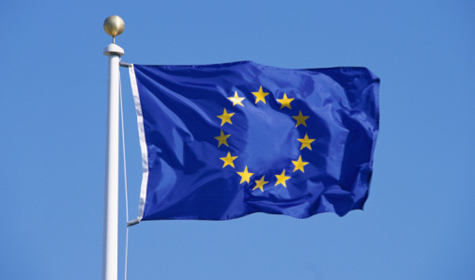Today, 1 September, the Economic and Monetary Affairs Committee gave its opinion on the Commission’s draft EU budget for 2022. A vote was held on both a decision text and budgetary amendments. Crucially, the committee has the possibility to exert pressure by allocating or withdrawing funds in order to correct deficiencies or to strengthen or weaken individual budget titles. We Greens were able to achieve important decisions today, with broad support in the committee:
- Additional funds for the European Commission on the condition that deficiencies in the area of anti-money laundering are addressed: After the European Court of Auditors gave the EU institutions a damning report card on their anti-money laundering measures, we see an urgent need for action. That is why we have tabled an amendment to the budget that provides more money for the Commission to better monitor the enforcement of Union law designed to tackle money laundering. At the same time, we made this additional money conditional on the Commission implementing the recommendations of the European Court of Auditors. In its report, the Court also accused the European Banking Authority (EBA) of deficiencies: The EBA fulfils its supervisory function in an insufficient manner, following up on suspicious activity reports only with unreasonable, “excessive delays” , if at all. Therefore, we wanted to link the disbursement of part of the funds to the implementation of the recommendations made by the Court of Auditors, in order to increase the pressure on the European Banking Authority to fulfil its mandate. However, this amendment to the budget was rejected with the votes of Christian Democrats and Social Democrats as well as MEPs of the extreme right (see result of the roll call vote at the end of the email).
- Part of budget for Eurostat to be put in reserve: Eurostat, the statistical office of the European Union, is also showing deficits. We have been calling for a long time for Eurostat to improve the accessibility of its statistics, notably by making its website more user-friendly. We need reliable data in order to check the effectiveness of our laws and to be able to improve them if necessary. We also need robust figures to identify problems and propose solutions. Unfortunately, the statistics we have are poorly prepared and not available in all EU languages. It is hardly possible to easily generate useful graphs from Eurostat data on their website. We also lack the indicators to better quantify important societal challenges: For example, we lack reliable and comparable figures on gender-based violence, inequality, organised crime and digitalisation. Therefore, we ask Eurostat to develop and implement two action plans: one action plan with concrete measures and targets on how they will improve the usability of their website, and a second action plan to develop new indicators that make progress on European priorities such as digitalisation visible and measurable. Until these conditions are met, a total of €4 million in budgetary funds earmarked for Eurostat should not be disbursed.
- Part of budget for the International Accounting Standards Board (IASB) to be put in reserve: The International Accounting Standards Board – a body that defines uniform international accounting standards – has also not done its homework. As early as 2016, the European Parliament called for improvements in its administrative and governance structures in a resolution. These have still not been implemented five years later. Our amendments to put part of the earmarked funds for Eurostat as well as for the IASB in reserve were supported and adopted by a broad pro-European majority in the Economic and Monetary Affairs Committee.
- Funding for the EU Tax Observatory secured for 2022: Together with Social Democrats and Liberals, we were able to secure funding for the European Tax Observatory for 2022. Professor Gabriel Zucman and his team are doing excellent work to shed light on our tax policy options, to better understand the status quo and to identify alternatives. This important work is clearly a thorn in the side of the Conservatives, as the Christian Democrats voted unanimously against the approval of the funds, but to no avail.
Where do we go from here? Parallel to this process in the Economic and Monetary Affairs Committee, other committees in the European Parliament also adopt opinions and amendments to the budget. These are then taken into account by the lead Committee on Budgets and are incorporated into a common parliamentary position. In this internal coordination process, we will continue to work to ensure that the European Parliament consistently demands important reforms and takes up the recommendations of the Committee on Economic and Monetary Affairs. The budgetary provisions are an effective means for the Parliament to insist on the implementation of reforms.
With Green European greetings,
Sven Giegold
—
Link to the budgetary amendments in the ECON Committee : https://www.europarl.europa.eu/doceo/document/ECON-DT-696325_EN.html
Link to the results of the roll-call vote: https://www.europarl.europa.eu/cmsdata/239074/RCV_Voting%20session%20ECON_01.09.2021.pdf
—
P.S.: Urgent Petition: “Save the European Green Deal”. The centrepiece of Europe’s push to meet the Paris Climate Goals is threatened to fail. EU Member States block every step for more ambitious climate protection. But there is still the chance to #SaveTheGreenDeal. Help us bei signing and sharing this petition with others: www.change.org/save-the-eu-green-deal

